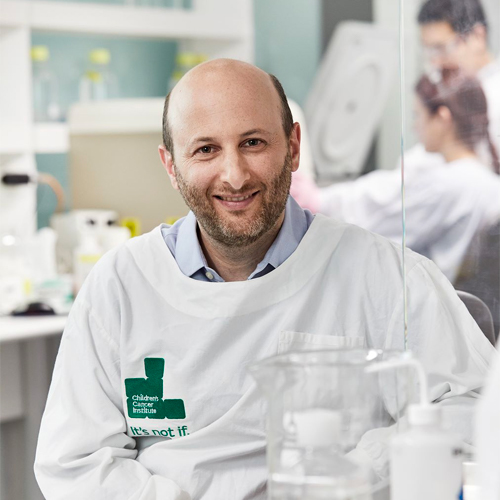Every year around 200-400 children die from the incurable brain tumor, Diffuse Intrinsic Pontine Glioma (DIPG) in the US and Australia. The average age of diagnosis for DIPG is just seven years old. There are no effective treatments, and average survival is from 12-18 months.
A paper published in the prestigious journal, Nature Communications, reveals a revolutionary drug combination that – in animal studies and in world first 3D models of the tumor – is “spectacularly effective in eradicating the cancer cells,” according to lead researcher and pediatric oncologist Associate Professor David Ziegler, from the Children’s Cancer Institute and Sydney Children’s Hospital. These promising results were the product of a research project funded by local charities The Cure Starts Now Foundation, Jeffrey Thomas Hayden Foundation, Pray Hope Believe, Lauren's Fight for Cure and partner foundations of The DIPG/DMG Collaborative.
In pre-clinical testing in mouse models, the researchers found that the promising drug combination led to survival in two thirds of the mice and that the drug combination completely halted growth of these highly aggressive tumors in these mice.
Importantly, the drug therapy, which is currently in early trials in adult cancer, is the most effective treatment ever tested in laboratory models of this incurable childhood cancer. The treatment is a combination of two drugs: difluoromethylornithine (DFMO), an established drug, and AMXT 1501, an investigational agent being developed by Aminex Therapeutics.
DFMO is increasingly getting attention as a treatment for difficult-to-control cancers like neuroblastoma, another aggressive childhood cancer, and colorectal cancer in adults. DFMO works by targeting the polyamine pathway – an important mechanism that allows tumor cells to grow.
Associate Professor Ziegler has shown for the first time that the polyamine pathway is critical to the growth of DIPG cells. Ziegler and his team developed Australia’s first research program into DIPG by using tumor cells donated by the parents of children who have passed away from the disease. From these, they created the first laboratory models of the tumor in order to test new drugs. These models have been used to show that DIPG can bypass the activity of DFMO by pumping polyamines into the cancer, essentially allowing the tumor to continue growing despite treatment with DFMO. They have now made the breakthrough discovery that treatment with a new developmental drug, AMXT 1501, potently blocks the transport of polyamines into the DIPG cancer cell. Treatment with AMXT 1501 was found to re-sensitize the DIPG cells to DFMO leading to what Associate Professor Ziegler said, “was a spectacular response in animal models, with a significantly increased survival and minimal toxicity (side effects).”
About The Cure Starts Now: The Cure Starts Now was started in honor of 6-year-old Elena Desserich, a Cincinnati girl who battled a rare, aggressive form of brain cancer known as DIPG. Today, The Cure Starts Now Foundation has over 40 locations in three countries and is the only cancer foundation dedicated to finding the Homerun Cure™ for cancer by focusing on one of the rarest, most aggressive forms of cancer. Believing in more than just awareness, The Cure Starts Now has funded over $16.5 million in cancer research, resulting in over 133 cutting edge research grants in 15 countries since 2007. Learn more about The Cure Starts Now and their mission to find the Homerun Cure™ for cancer at https://www.thecurestartsnow.org.
Follow us at facebook.com/TheCureStartsNow/ and instagram.com/curestartsnow.
About The DIPG/DMG Collaborative: The DIPG/DMG Collaborative is a collection of foundations with the shared mission of efficiently funding and inspiring DIPG cancer research with the belief that through a cure for DIPG, significant advances in other cancer research will be made. As of 2021, membership included 28 independent foundations, dedicated to research funding with transparency, cooperation and the elimination of duplication. You can find more at www.dipgcollaborative.org.
Media Contact:
Kelly Bogner
O: 513.772.4888 | [email protected]


